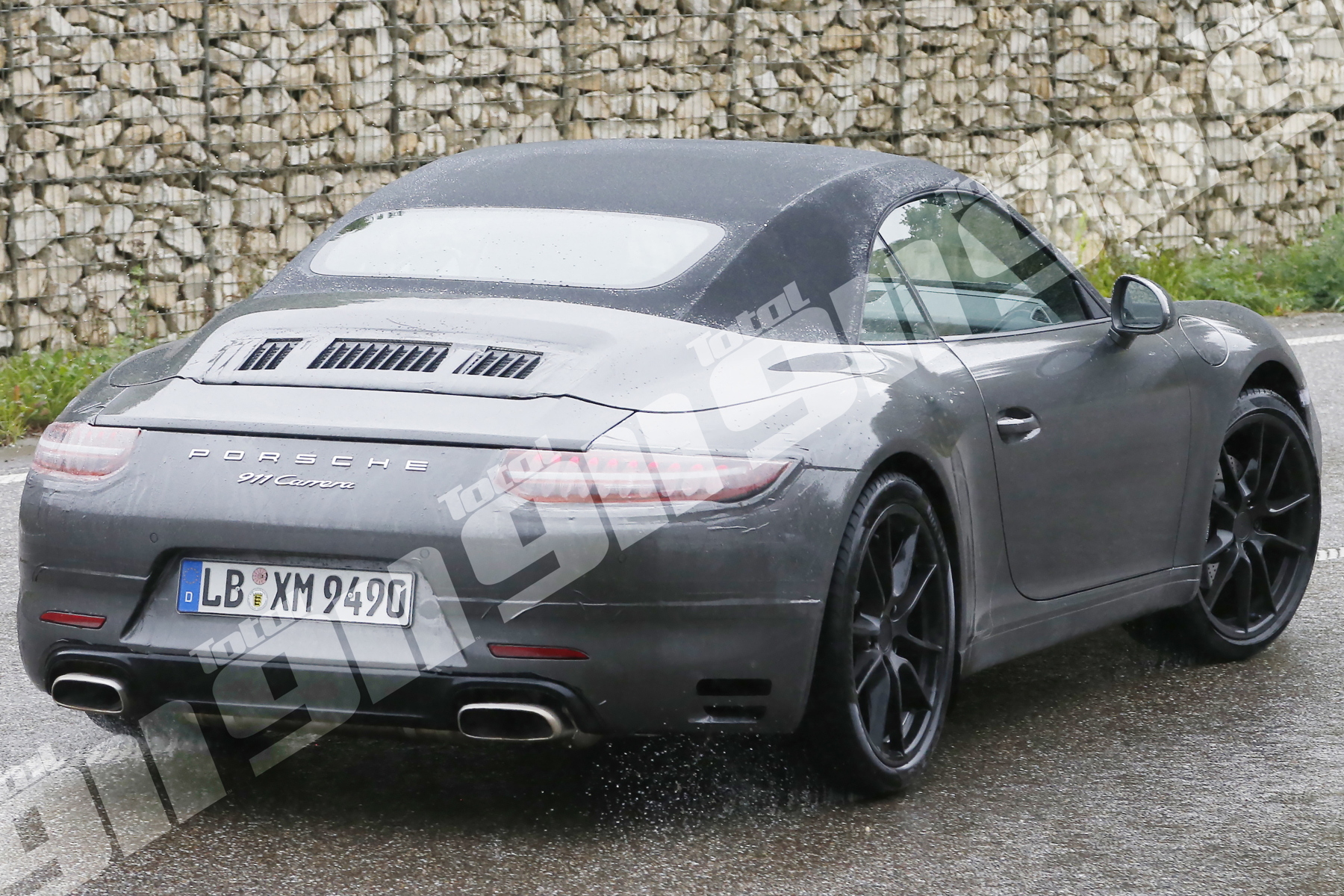Opinion: Will turbocharging kill the Porsche 911?
Last week we brought you exclusive spy photos of what is purported to be the Porsche 991’s full-scale replacement: the 992. While the exterior visuals may only look subtly different to the current Porsche 911 Carrera, under the skin, the new base car is rumoured to feature a turbocharged flat six engine.
With the 991 introducing a number of features lambasted by ‘911 purists’ (whatever that term really encompasses), this major possible change to the 911’s philosophy could alienate traditionalists even further, begging the question: ‘Will turbocharging kill the Porsche 911?’
The obvious answer is ‘no’. The Porsche 911 has survived the addition of power steering, ABS, water-cooled engines, and overall growing computerisation over the last 50 years to the point where a 991 is a vastly different proposition to an original short-wheelbase car.
Both have their appeal to certain demographics and both are decidedly 911 in their ethos (the results just differ in their application). The very fact that a 991 replacement is in the works goes to show that, despite the EPAS, extra size, and computer assistance, Porsche realises a new 911 will survive the gripes of traditionalists.
What’s more, turbocharging is nothing new at Porsche, especially in the 911 range. 2014 marked the 40th anniversary of the revered 911 Turbo, a forced induction icon that has certainly gained its fair share of fans over the last four decades.
However, as I’ve pointed out before, in a modern context, I am not one of those fans (and I do not seem to be alone). While I am currently able to choose naturally aspirated propulsion in my new Porsche 911, taking away that choice would be dangerous.
While 930s enjoyed a unique charm thanks to their massive turbo lag, modern forced induction motors (whether single or twin turbocharged) aren’t prone to such idiosyncrasies as evidenced by the technological tour de force that is the 991 Turbo.
Despite this, the modern Turbo’s motor lacks the immediacy enjoyed by the Carrera and GT3’s naturally aspirated powerplants. Forced induction also muffles that awesome flat six howl, something that is a major appeal to many.
I understand that modern manufacturers are having to find ways of improving fuel consumption and reducing CO2 emissions in the face of ever-tightening EU restrictions, especially as Porsche also needs to be seen taking each generation of the 911 forward performance-wise.
In that sense, turbocharging is a smart option, providing the best of almost all worlds. But it can be an emotionless form of propulsion; preserve of tuning enthusiasts, yes, but certainly not my cup of tea.
Why not keep focussing on reduced weight (and even a reduction in power)? I called for such a thing lamenting the lack of a modern Clubsport though, in reality, the Top Trumps mentality of power and speed will always cause a need for Porsche to improve upon the last iteration.
Ultimately, with nothing confirmed either way, its all a moot point, albeit one that has set a lot of tongues in motion. One final thought takes me back to 1998 and the introduction of water-cooling. At the time a lot of fuss was made, with the death of the 911 heralded. 16 years on, our beloved icon is still going strong, so maybe I shouldn’t have similar fears of a turbo-only future. Only time will tell…
Do you agree with Josh? Will turbocharging irreversibly change the face of the 911? Join the debate in the comments section below, or head to our Facebook or Twitter pages now.





Comments (0)